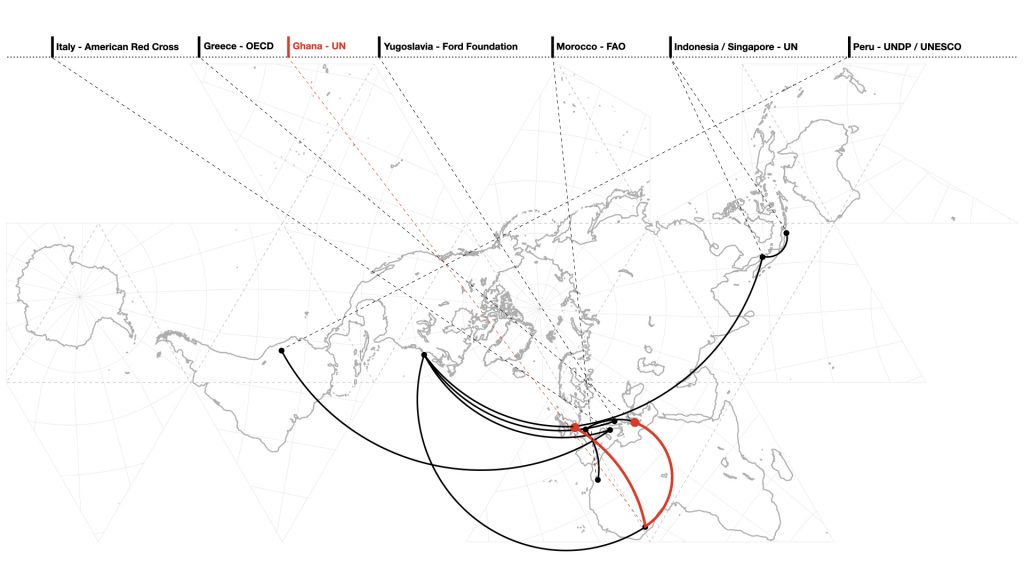Experts, Exports, and the Global Entanglements of Postwar Planning

Monica Pacheco (Instituto Universitário de Lisboa - Portugal) The Role of Technical Assistance Programmes in Postwar International Development: the Case of Abrams, Koenigsberger and Bodiansky in Ghana
In 1954, the United Nations sent to the Gold Coast, an English protectorate, a transnational team on a Technical Assistance Administration Housing Mission to advise the Government on questions of housing policy. The appointed team of international experts – Charles Abrams (1902-70), Otto Koenigsberger (1908-99) and Vladimir Bodiansky (1894-1966) – was orchestrated by the Yugoslavian architect Ernest Weissmann (1903-1985), at the time head of the UN-HTCP in the UN Division of Social Affairs. Together, they embodied the idealisation of international co-operation between peoples, nations and individuals representing different philosophies, on specific tasks that the UN sought to achieve, inscribed in a larger agenda of helping the emergence of a single world culture. Out of the two-month mission, the team produced an extensive report, defining targets and needs and covering a wide variety of topics from which housing policies were dependent of: administration: finance, education and construction. Each was deepened in separated appendixes, one of which specifically devoted to 'Technical Education’, containing the main underling strategy for the success of all others. It recommended the establishment, as soon as possible, of a School of Architecture and Planning since there were none in the country, further developed in an autonomous follow-up Mission. The goal was the training of a ‘General Practitioner’, i.e. a new professional to respond, paradoxically to urgent, specialised needs in housing. The team, and the report are paradigmatic of early post-war international aid and are representative of an important shift towards concepts of urban development. The theme of professional training and the widespread shortage of skilled personnel, already addressed by the 1949’s ‘Reconnaissance Mission of Experts on Low-Cost Housing in South and Southeast Asia’, was fundamental for the critical reasoning that followed.


